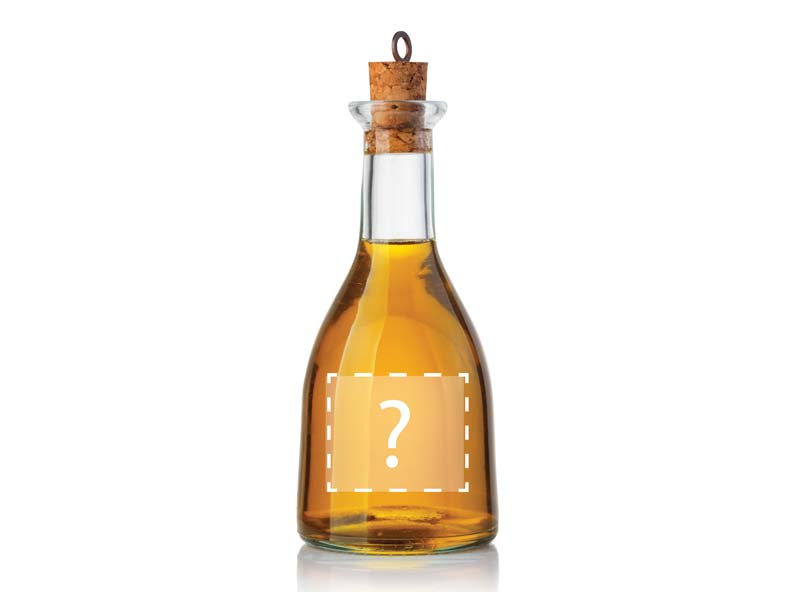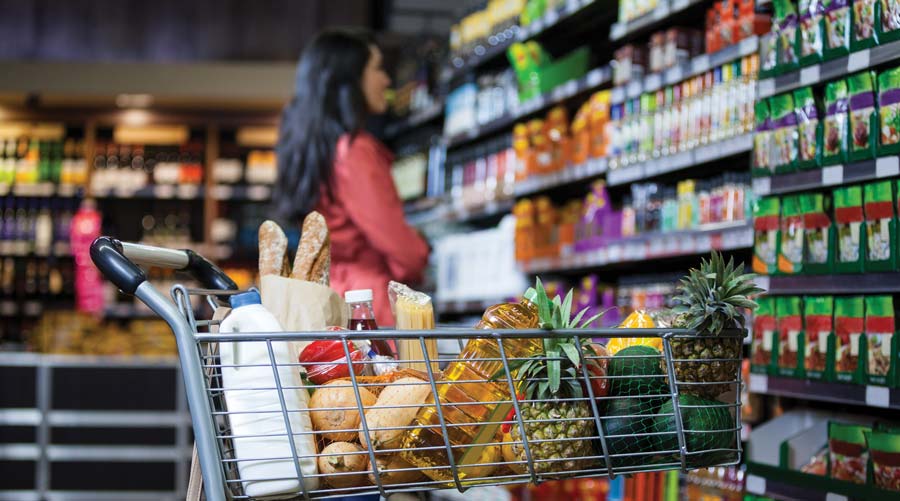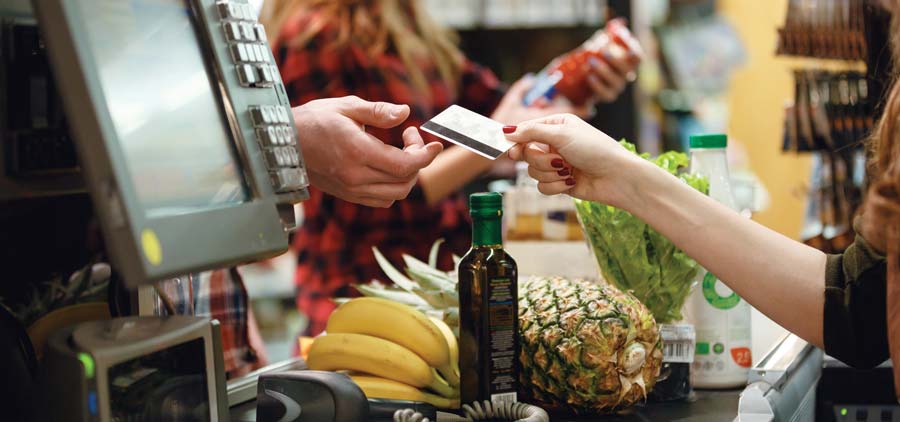



A recently-published study on European consumer healthiness evaluation of ‘free from’ labelled food products has concluded that such foods appeal more to consumers. It aimed at determining how ‘free from’ labelling shapes consumers’ perception and whether the absence of an ingredient is considered an indicator of improved nutritional value of food products.
The study was conducted by researchers from the renowned Swiss Federal Institute of Technology in Zurich and the Brussels-based European Food Information Council, a non-profit organisation that ‘stands up for science-based information on food and health’.
They came to the conclusion that products with a ‘free from’ label are considered healthier than products without the label; and that the strongest effects occurred for ‘GMO-free’ and ‘palm oil-free’ labelling.
Under the study, an online survey was conducted with 500 respondents in France, Poland and Sweden and 450 in the UK. Four labels – lactose-free, gluten-free, GMO-free and palm oil-free – were tested using different product categories.
Each label was shown on three different food products that are common in all four countries: bread/pasta/cookies products with a ‘free from gluten’ claim; cheese/milk/yoghurt with a ‘free from lactose’ claim; oil/maize/chocolate with a ‘free from GMOs’ claim; and margarine/chocolate spread/chocolate with a ‘free from palm oil’ claim. The sample mock-up products were designed based on images of real products available on the European market.
The healthiness perception was evaluated by comparing products with the ‘free from’ label to identical products without the label, and asking specific questions. Potential factors for the healthiness evaluation and the intention to pay a price premium were nutrition knowledge, information-seeking on food packages, preference for food naturalness, general health interest, trust in actors in the food domain, and ‘affect’ regarding the absent ingredients. The concept of ‘affect’ was measured for each label separately by asking participants to indicate their feeling(s) when they think about the different ingredients.
With respect to palm oil, the study stated that there is currently no official (i.e. legally permitted) label for products in the European market to indicate that the product is free from palm oil. However, individual retailers or manufacturers use their own labels to highlight that their products are ‘palm oil-free’. The study also noted that there is one label used for food packaging, which indicates the use of palm oil certified by the Roundtable on Sustainable Palm Oil.

Results of the study
The findings indicated that products with a ‘free from’ label were considered healthier than products without such a label. The largest deviations from the average response were observed for the ‘GMO-free’ and ‘palm oil-free’ labels.
Country effects were observed as well. The largest differences in the evaluations were observed for ‘GMO-free’ and ‘palm oil-free’, with less significant differences for ‘lactose-free’ and ‘gluten-free’ labels. Participants from France evaluated chocolate, chocolate spread and margarine labelled as ‘palm oil-free’ and maize, oil and chocolate labelled ‘GMO-free’ as being healthier compared with respondents from Sweden and the UK.
A majority of the participants, independently of the country of origin, evaluated food products with the ‘GMO-free’ and the ‘palm oil-free’ labels as being healthier than identical products without such labels. The effects appear to be less significant for the ‘gluten-free’ and the ‘lactose-free’ labels.
The researchers suggested that these sentiments may be due to French policy: ‘Public debate and negative media coverage [in France] as well as the contemplated tax ban on palm oil and restrictive regulation of GMOs in food and crops could be drivers of the negative image these ingredients have in the French consumer sample.’
Moreover, the results appeared to indicate that the removal of something (e.g. lactose) or the absence of an ingredient (e.g. palm oil) that holds negative connotations in consumers’ perception can lead to a more positive evaluation of the product displaying such labels.
Indeed, the most consistent and strongest country-specific effects for both healthiness evaluation and intention to pay a price premium were observed among French participants in the context of ‘GMO-free’ and ‘palm oil-free’ labelling.
French respondents also reported the strongest negative connotation for these two ingredients. Consumers considered policy to be based on the judgments of experts; and policy concerning the regulation of GMOs and palm oil might have significantly influenced individuals to intrinsically assume that products containing these ingredients are less safe or less healthy.
The researchers argued that certain labelling contains important information for consumers with food allergies (e.g. to gluten) or intolerances (e.g. for lactose). The question is whether these labels may also be a purchase incentive for consumers who are not required to check their diet for these ingredients, but rather attribute false characteristics, such as healthiness, to products due to the labelling.
Past research has shown that consumers do not always interpret labels as intended by food business operators. In the case of ‘free from’ labels, consumers might interpret the label as a sign of unpalatability; as being only useful for certain consumer groups; or as an indicator for a healthier food option.
Currently, the number of ‘palm oil-free’ labelled products in France is larger than in any other country. Extensive market research, last conducted in 2016, has shown that an increasing number of food business operators use ‘no palm oil’ or ‘palm oil-free’ claims/labels on a large number of food products.
The number of products bearing such claims in France increased from 312 in 2013, to 666 in 2014 and to 692 by the end of 2015. The number of brands using such claims also increased from 39 in 2013 to 60 in 2014 and to 66 in 2015. It can be assumed that French consumers have been confronted with ‘palm oil-free’ labels over a long period of time and through increasingly virulent commercial campaigns.

Noteworthy is that the study confirmed an increased consumer willingness to pay a price-premium for ‘free-from’ labelled products. The study showed that, in particular, French respondents were the most receptive to ‘palm-oil free’, and attributed this to public debate and negative media coverage.
Food labels influence and shape consumers’ food shopping behaviour. This change of behaviour must clearly be factored in when assessing the relevance and legality of certain ‘free from’ claims. The French respondents expressed the strongest intentions to pay more for ‘palm oil-free’ products.
However, an author of the study reportedly stated: “In my view the industry should be cautious with using ‘free from’ labels, however. It could create mistrust if consumers realise that ‘free from’ products may not be healthier than comparable products with [the ingredient].”
The study appeared to confirm that the negative campaigns and discriminatory policies in France reach the consumers and influence their purchasing decisions. Obviously, this is deceptive, anti-competitive and negative for the palm oil industry.
The outcome of this study could also be interpreted as proof of the damage caused by ‘palm oil-free’ labels and campaigns. French consumers really believe that products with this infamous label are healthier. This perception must change. The industry needs to step up its educational campaigns vis-à-vis consumers and, where necessary, take legal action against denigratory, deceptive and anti-competitive practices.
FratiniVergano
European Lawyers